第148章 MORALITY AND RELIGION(21)
Finally, these intellectual giants, these representatives of the Renaissance, show, in respect to religion, a quality which is common in youthful natures.Distinguishing keenly between good and evil, they yet are conscious of no sin.Every disturbance of their inward harmony they feel themselves able to make good out of the plastic resources of their own nature, and therefore they feel no repentance.The need of salvation thus becomes felt more and more dimly, while the ambitions and the intellectual activity of the present either shut out altogether every thought of a world to come, or else caused it to assume a poetic instead of a dogmatic form.
When we look on all this as pervaded and often perverted by the all-powerful Italian imagination, we obtain a picture of that time which is certainly more in accordance with truth than are vague declarations against modern paganism.And closer investigation often reveals to us that underneath this outward shell much genuine religion could still survive.
The fuller discussion of these points must be limited to a few of the more essential explanations.
That religion should again become an affair of the individual and of his own personal feeling was inevitable when the Church became corrupt in doctrine and tyrannous in practice, and is a proof that the European mind was still alive.It is true that this showed itself in many different ways.While the mystical and ascetical sects of the North lost no time in creating new outward forms for their new modes of thought and feeling, each individual in Italy went his own way, and thousands wandered on the sea of life without any religious guidance whatever.All the more must we admire those who attained and held fast to a personal religion.They were not to blame for being unable to have any part or lot in the old Church, as she then was; nor would it be reasonable to expect that they should all of them go through that mighty spiritual labor which was appointed to the German reformers.The form and aim of this personal faith, as it showed itself in the better minds, will bc set forth at the close of our work.
The worldliness, through which the Renaissance seems to offer so striking a contrast to the Middle Ages, owed its first origin to the flood of new thoughts, purposes, and views, which transformed the mediaeval conception of nature and man.The spirit is not in itself more hostile to religion than that 'culture' which now holds its place, but which can give us only a feeble notion of the universal ferment which the discovery of a new world of greatness then called forth.This worldliness was not frivolous, but earnest, and was ennobled by art and poetry.It is a lofty necessity of the modern spirit that this attitude, once gained, can never again be lost, that an irresistible impulse forces us to the investigation of men and things, and that we must hold this inquiry to be our proper end and work.How soon and by what paths this search will lead us back to God, and in what ways the religious temper of the individual will be affected by it, are questions which cannot be met by any general answer.The Middle Ages, which spared themselves the trouble of induction and free inquiry, can have no right to impose upon us their dogmatical verdict in a matter of such vast importance.
To the study of man, among many other causes, was due the tolerance and indifference with which the Mohammedan religion was regarded.The knowledge and admiration of the remarkable civilization which Islam, particularly before the Mongol inundation, had attained, was peculiar to Italy from the time of the Crusades.This sympathy was fostered by the half-Mohammedan government of some Italian princes, by dislike and even contempt for the existing Church, and by constant commercial intercourse with the harbors of the Eastern and Southern Mediterranean.
It can be shown that in the thirteenth century the Italians recognized a Mohammedan ideal of nobleness, dignity, and pride, which they loved to connect with the person of a Sultan.A Mameluke Sultan is commonly meant; if any name is mentioned, it is the name of Saladin.Even the Osmanli Turks, whose destructive tendencies were no secret, gave the Italians only half a fright, and a peaceable accord with them was looked upon as no impossibility.
The truest and most characteristic expression of this religious indifference is the famous story of the Three Rings, which Lessing has put into the mouth of his Nathan, after it had been already told centuries earlier, though with some reserve, in the 'Hundred Old Novels' (nov.12 or 73), and more boldly in Boccaccio (Decamerone, i, nov.3).In what language and in what corner of the Mediterranean it was first told can never be known; most likely the original was much more plain-spoken than the two Italian adaptations.The religious postulate on which it rests, namely Deism, will be discussed later on in its wider significance for this period.The same idea is repeated, though in a clumsy caricature, in the famous proverb of the 'three who have deceived the world, that is, Moses, Christ, and Mohammed.' If the Emperor Frederick II, in whom this saying is said to have originated, really thought so, he probably expressed himself with more wit.
Ideas of the same kind were also current in Islam.At the height of the Renaissance, towards the close of the fifteenth century, Luigi Pulci offers us an example of the same mode of thought in the 'Morgante Maggiore.' The imaginary world of which his story treats is divided, as in all heroic poems of romance, into a Christian and a Mohammedan camp.